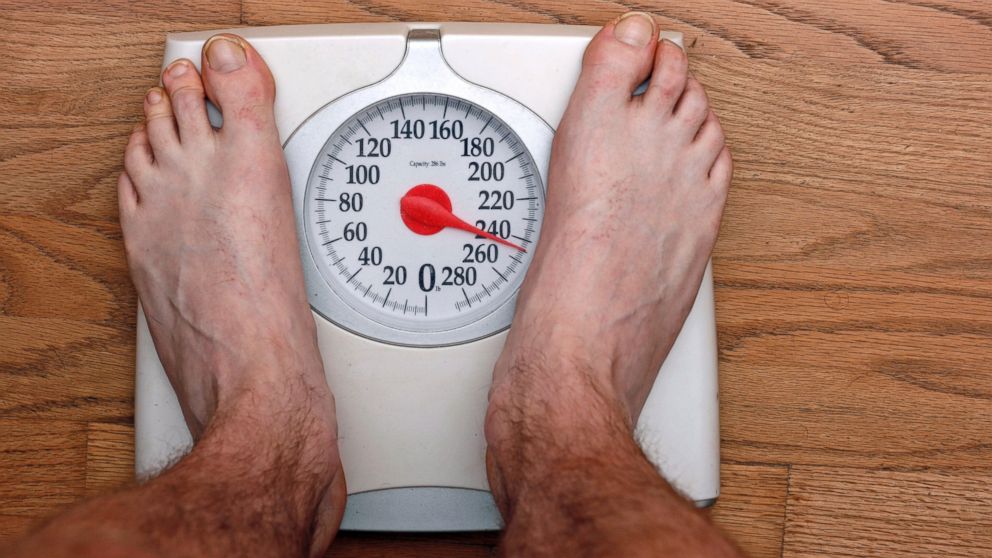This 'Feel Full' Chemical Could Be the Future of Weight Loss
New study shows how the chemical propionate can affect appetite.

— -- Scientists in the U.K. say they have devised an innovative way to fight against weight gain by making diners “feel full.”
Researchers from the Imperial College London and the University of Glasgow published a small study in the medical journal Gut examining the effects of a fatty acid called propionate on hungry diners. Your body makes propionate naturally when dietary fiber is broken down in your digestive system, and in theory, propionate tells your brain to stop eating.
It has been studied in mice as a possible appetite suppressant, and the Glasgow researchers wanted to see if it worked in humans.
Dr. Gary Frost, the co-author of the new study, said the goal was to give adults a way to fight back against slow incremental weight gain that happens over time."We know that adults gain between 0.3 and 0.8 kilos [0.7 and 1.8 pounds] a year on average, and there's a real need for new strategies that can prevent this,” Frost said in a statement.
In the first part of the study, 20 dinners were given additional propionate or a dietary fiber supplement and let loose on an open banquet. Those who were given the propionate ate 14 percent less than the people who were given the fiber supplement, according to the study.
Frost and his colleagues were able to sprinkle propionate over food because they bound it to a dietary fiber called inulin, which comes in powder form. The inulin allowed the propionate to travel to the colon, where it was released into the body.
In the second part of the study, 60 overweight people started integrating either powered propionate or dietary fiber into their daily meals over 24 weeks. Those taking propionate were more easily able to maintain their weight, the study found.
Only one of the 25 volunteers who took daily propionate gained more than 3 percent of their body weight, according to the study. In comparison, six out of 24 volunteers who were given propionate gained more than 3 percent of their body weight.
Although some study participants lost weight during the study, the difference in weight loss between those who ingested propionate with their food and those who didn’t was not statistically significant.
At the end of each section of the study, the researchers measured participants’ hormones associated with hunger and feeling full. During the banquet part of the study, they found raised levels of appetite surprising hormones. In the daily meals part, there was no measurable difference in hormones.
Researchers are working on conducting more studies and working with a food company to develop propionate into an approved food ingredient, Frost said, describing the powered propionate as tasting "slightly bitter."
Dr. Naveen Uli, a pediatric endocrinologist at University Hospitals Rainbow Babies and Children’s hospital in Cleveland, Ohio, said this study is part of a larger trend in the medical community to look at changing food itself to create healthy eating habits.
“I think it is promising, but certainly it remains to be seen if the effects are sustained in a larger study,” said Uli, who was not involved in the new study.
ABC News Chief Health and Medical Editor Dr. Richard Besser said studies have shown proprionate can help control weight in mice, but results in humans are not as clear.
“What this suggests is there may be ways to trigger the body to tell us we’re full. That could be a really exciting approach to weight control coming in the future,” Besser said. "So far, no, this is not the silver weight loss bullet.”
ABC News' Dr. Lisa Denardi contributed to this report.



